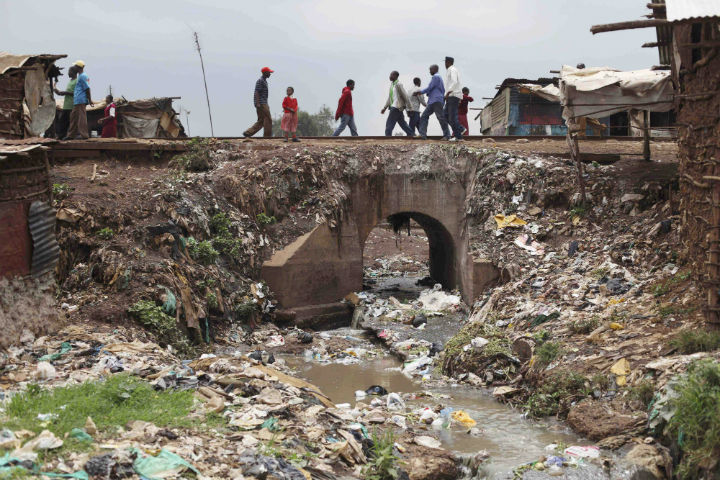TORONTO – When Ph.D student Nicholas Nduti told his professors at the University of Western Ontario about locals eating tainted produce in his native Kenya, the scientists knew they wanted to help.

In recent years in Nairobi, only 17 per cent of the total maize sampled was fit for human consumption. Corn, and other staples like peanuts, don’t fare well in the heat and moisture and develop a fungus that produces aflatoxins. When locals eat the produce, they deal with severe illnesses from the poisoning.
This is where Dr. Gregor Reid comes in. Since 2004, his team has been working on yogurts formulated with certain probiotics that help fend off environmental toxins and pesticides found in food.
This may be the tastiest way to get rid of toxins found in our food supply and better our health. And the innovation has Canadian fingerprints all over it.
READ MORE: 6 Canadian game-changing ideas for global health care
“There are things these bacterias do that break down food and carcinogens. You can’t say they prevent cancer, but they do things that in the long-term are beneficial to us,” Reid told Global News from Nairobi.
“This is not just about Kenya. The applications for Canada are definitely there and we should be seriously looking at them. We could make a difference,” he said.
Reid is a microbiology professor at the Lawson Health Research Institute where he focuses on women’s health. He’s also director of Canadian Research and Development Centre for Probiotics.
Last Thursday, Reid and his UWO team received $100,000 in seed money from Grand Challenges Canada, an organization funded by the government. More than 80 Canadian and international projects that hope to change the face of health care received the grant money.
So far, Reid has developed yogurts with probiotics to help other African nations. The researchers identify key issues that may plague a community’s health care system and try to find the right bacteria that could help them.
In Uganda, that meant adding probiotics to yogurt that would help with indigestion, and any issues with their intestines. In Tanzania, they eat a lot of fish laced with mercury and lead – Reid’s yogurt helped locals lower the amount of chemicals they were consuming from the seafood they caught.
READ MORE: The best and worst foods for pesticide levels
In India, locals deal with sepsis – a severe inflammation – in that case, other bacteria strains were picked out to add to yogurt.
This time, Reid’s team hopes to add probiotics to yogurt that would then be fed to local Kenyans. The bacteria would ideally cling to the dangerous aflatoxins, absorb and push the poison out of the body. That way, consumers can keep eating these affordable staples without any sickness.
In Canada, toxins and pesticides can be found in produce, water run-offs and other products like plastic items, bug sprays or cleaning products.
“We should monitor more carefully and we should see the long-term impacts on our health and if there are foods we can take that can limit absorption, why not take it?” Reid said.
READ MORE: What one woman in Gabon taught doctors about global obesity
With his seed money, Reid is hoping to set up clinical trials in rural parts of Kenya. Nduti is on the ground – there, he’ll set up a kitchen, help the process for producing yogurt and give it to children for a month. During that time, the scientists will monitor the level of aflatoxins in their bodies to see if they’ve got the right formulation. They’ll also look at their daily diets, the microbes in their gut, and their blood and urine levels.
Right now, “yogurt mamas” – local women who are part of groups that try to improve health in their communities – make and sell the yogurt in Tanzania, Uganda and other countries.
Ultimately, Reid said he hopes to develop kits by growing the organisms in milk, drying the product out and putting the powdered probiotics in packages. That way, the healthy bacteria is easier to transport, it stays fresher than yogurt would and it can be added to soups, cereals, drinks and other food.
READ MORE: 5 Canadian innovations that could change the face of global health care
They’d be no more than five to 10 cents to produce, so it’d be accessible to locals in these nations. The most expensive part would be the milk the powder would be added to, Reid said.
Reid said the ideal situation would be to create a system that locals can run themselves.
“If you cover 10 cents, in the long run, it’s not sustainable. There has to be a day where they don’t need us anymore,” he said.
“Hopefully they’ll want to work with us but they won’t need us. Then we’ve succeeded,” Reid said.
carmen.chai@globalnews.ca
Follow @Carmen_Chai



Comments